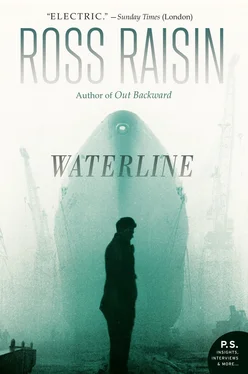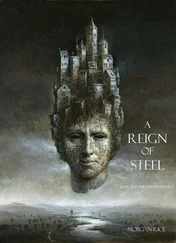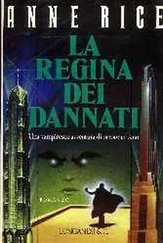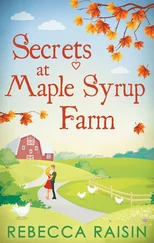Ross Raisin - Waterline
Здесь есть возможность читать онлайн «Ross Raisin - Waterline» весь текст электронной книги совершенно бесплатно (целиком полную версию без сокращений). В некоторых случаях можно слушать аудио, скачать через торрент в формате fb2 и присутствует краткое содержание. Год выпуска: 2012, Издательство: Viking, Жанр: Современная проза, на английском языке. Описание произведения, (предисловие) а так же отзывы посетителей доступны на портале библиотеки ЛибКат.
- Название:Waterline
- Автор:
- Издательство:Viking
- Жанр:
- Год:2012
- ISBN:нет данных
- Рейтинг книги:3 / 5. Голосов: 1
-
Избранное:Добавить в избранное
- Отзывы:
-
Ваша оценка:
- 60
- 1
- 2
- 3
- 4
- 5
Waterline: краткое содержание, описание и аннотация
Предлагаем к чтению аннотацию, описание, краткое содержание или предисловие (зависит от того, что написал сам автор книги «Waterline»). Если вы не нашли необходимую информацию о книге — напишите в комментариях, мы постараемся отыскать её.
Waterline — читать онлайн бесплатно полную книгу (весь текст) целиком
Ниже представлен текст книги, разбитый по страницам. Система сохранения места последней прочитанной страницы, позволяет с удобством читать онлайн бесплатно книгу «Waterline», без необходимости каждый раз заново искать на чём Вы остановились. Поставьте закладку, и сможете в любой момент перейти на страницу, на которой закончили чтение.
Интервал:
Закладка:
A while later and the neighbour is awake. Mick can hear him shuffling forward and unzipping a bag down by his feet. The sound of paper, or plastic, tearing. Then the smell of food, a sausage roll, which he brings up to his mouth and starts eating. Okay, well, a plan. The first thing when the coach gets in is to eat: probably he’ll have to find a petrol station or a 24-hour minimarket and wait in the coach station until everywhere else starts opening up. Then onto the job hunt. For starters, this one he’s seen in the Southside News .
The guy is looking across at him.
‘You know where is King’s Cross?’ he asks, as if they’ve been pattering away all this time.
‘I’ve no idea, pal, sorry. I’ve no been to London before.’
The man nods and carries on eating his sausage roll, then after a while he gets out his mobile phone and starts thumbing away. It’s a pretty decent point — does it matter that he’s never been there before? No, it doesn’t. That’s the best bloody thing about it. He needs to keep things simple. Keep away from any reminders. Go see about this job advertised in the paper and get on top of himself, fix things out. Englandshire. Nobody will guess that one. He’s only been twice before: the six months in Newcastle was the last time, and way before that, when they weren’t long married, a visit to Cathy’s cousin and the husband in Northampton. Fucking terrible. There were a few of her relatives set up in England, and they’d spent a miserable week with these, himself going about the place trying no to spill and break things and none of her lot speaking with him unless it was to ask him stupit questions about the yards, that same way people use when they ask a wean how school is going. They didn’t come to the funeral, that pair, as far as he can mind.
It is raining. He sits back and looks at the giant windscreen wipers going back and forth on the front window. Thinking about England. Newcastle. How he’d felt going down this very motorway, moving further away from home; the argument that him and Cathy had got into the night before he left, both of them shouting, Thatcher on the television in the background, bringing the poll tax to Scotland. See in truth he’d been lucky getting a job at all, because Swans had went the same way as everywhere else — privatized, shrunk — but he hadn’t felt lucky; he’d felt fucking terrible. He’d rented a room in a house with quite a few Swans workers, young lads mainly, and a guy his own age from Southampton, he can’t mind his name. They’d all go out together to the bars, come back and get the landlady raging. But the clearer memory is of the nights he’d spent alone in his room, drinking, wondering what in hell he was doing in this place. Sat there on his days off, the TV on, until it got too much and he’d go the long walk to the phone box a few streets away.
The neighbour is snoring. Mick turns toward the window, trying to shake the mood that has come over him. Remind himself it wasn’t all bad. Because it wasn’t. They were good men, for one thing. Mad for their football, anyway. There were always games down by the jetty after lunch; races up the bank by the young lads at the end of a shift; nicknames — Big Yin, they’d called him right from day one, because they knew Billy Connolly had worked on the yards. He never really felt part of it though. He couldn’t, no with Cathy and the boys up in Glasgow. And it wasn’t his yard; his river. He didn’t belong there. Didn’t get the same feeling from it: that sense of the river always being there, around him, inside him. The sheer thrill of a ship on its stocks, grown from just a few small pieces of metal, walking toward it each morning and seeing that it was bigger, looking like it was parked there at the end of the street, looming over the end tenement. He can mind exactly the feeling of it. The sound of the hooter. The gates opening and the mass of workers teeming through. Getting into the yard and seeing that the graffiti on the hull had been added to — jokes, patter, Proddy slogans — so that when the ship was near completion you’d look at her and the whole of her side would be a mess of chalk scrawlings. Comic pictures of the managers. Competitions of who could write the highest. Two-year-long conversations. And then, when she was built, it would all be painted over and there’d be no clue as to what was written underneath; except if you looked hard enough, the tiny scribbling along the waterline where the painters had wrote their nicknames.
The driver is pamping the horn to get everybody awake. Mick stands groggily, and presses into the line slowly moving down the aisle. As he steps off the coach, away into the terminal, it is the first chance he’s had to see the other passengers. There’s a fair number of East Europe types amongst them, it looks like. Something about the quiet way they get on with things, filing off to the exit and seeming to know exactly where it is they’re headed — even the neighbour, striding off with his bag over his shoulder, King’s Cross here I come.
There is a snack machine in the arrivals terminal and he gets himself a Mars bar, then sits down on one of the backless plastic seats, pulling his jacket tightly about him, and tries to get the brainbox working.
Somebody standing over him. A big fella with a meaty face.
‘You okay there, mate?’
A sliver of belly poking out beneath the shirt.
‘Do you know where you are?’
Mick chuckles. ‘I’ve no got a clue, pal.’ He notices then there’s the half-eaten Mars in his lap.
‘You can’t stay here, I’m afraid.’
‘It’s fine, see I must’ve fallen asleep for a minute just. I’m looking for a cafe that’s open, if ye know somewhere.’
‘I do actually. There’s one just round the corner, as it happens.’
He points Mick what direction it is and waits for him to get up and leave.
When he gets there it is open, like the man said. The pleasurable sound of chairs and plates and low conversation as he steps in and gets himself a table, reading the breakfasts off coloured sheets of card above the kitchen. A few coach-driver types drinking coffees. A street cleaner in a high-vis jacket, and he minds suddenly the incident with the parkie and the stolen flowers, but he shuts it out straight away as the guy comes over for his order. Bacon and eggs, and a tea. He’s pretty friendly, the time of morning it is, humming himself a wee tune. Turkish, if the poster above the kitchen is anything to go by. Things have started well. A hot breakfast about to arrive, in a little wink-wink of a place that he’s found, when instead he could easily be pounding about the streets right now for a petrol station.
When he’s finished, he goes up the counter and asks the guy if he knows anywhere nearby he might get a room for what’s left of the night.
‘Hostel? B&B?’
‘B&B, aye.’
He reaches for his order pad and pulls a pen from his trouser pocket, but then hesitates, deciding against it. He points an arm to his left.
‘You see this street? You go down, you go left under the bridge, and there — there are many places. Ten minutes.’
Mick thanks him and picks up his bag to leave. No bad, eh, this London. No bad.
He can see the bridge up the way. It is a railway bridge, he can make out as he gets closer, walking alongside the high sooty walls that follow the road beneath. There is a narrow street just before the bridge and he turns onto it, past a builders’ merchants and an MOT garage under the arches. A few minutes down and he spots a cracked white plastic sign: BED AND BREAKFAST: SINGLE £25, DOUBLE £40, FAMILIES £60. Fine. It will do. He just needs a bed for the night, it’s no like he’s choosy. He goes up the steps and there’s no obvious buzzer so he tries the door, and it’s open. He treads into a dimly lit corridor with a worn red carpet and the ribs of the floorboards showing underneath. Yellow, chappit wallpaper. At the end there is a sign — RECEPTION — and an arrow pointing up the staircase.
Читать дальшеИнтервал:
Закладка:
Похожие книги на «Waterline»
Представляем Вашему вниманию похожие книги на «Waterline» списком для выбора. Мы отобрали схожую по названию и смыслу литературу в надежде предоставить читателям больше вариантов отыскать новые, интересные, ещё непрочитанные произведения.
Обсуждение, отзывы о книге «Waterline» и просто собственные мнения читателей. Оставьте ваши комментарии, напишите, что Вы думаете о произведении, его смысле или главных героях. Укажите что конкретно понравилось, а что нет, и почему Вы так считаете.












